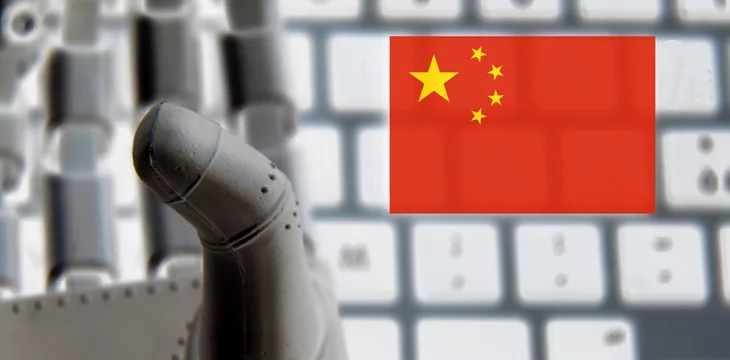|
Getting your Trinity Audio player ready...
|
Barely a year after Chinese authorities gave developers the green light to roll out their artificial intelligence (AI) products, a new report has uncovered multiple real-world use cases for the offerings across several industries.
The industrial applications of Chinese AI models have reached significant heights and could form the fulcrum for the future digitization of the economy. Previously, the country pitched its tent with blockchain technology and quantum computing, but new metrics reveal that AI has a clear lead over other emerging technologies.
During the Beijing International Automotive Exhibition, car manufacturers teased new models equipped with AI functionalities to improve consumers’ driving experiences, with a keen focus on self-driving functionalities.
Robotics companies based out of Mainland China are turning to AI integration to equip their humanoid robots with advanced capabilities. One android demonstrated proficiency in task scheduling while others are pushing the frontiers with the ability to fold clothing items and develop applications.
The report highlighted a streak of use cases across several industries, with financial institutions using AI to crack down on money laundering and other fraudulent activities. In healthcare, several labs are leaning on large language models (LLMs) to improve the drug-making process while schools are incorporating them as learning aids for students.
The integration of generative AI in China appears to follow two main pathways. The first involves the development of general large-scale models with applications along a broad spectrum ranging from healthcare to education.
However, the second is narrower in utility and largely industry-specific for commercial applications. The report name-checks applications in remote sensing, biopharmaceuticals, and meteorology, racking up millions of dollars’ worth of institutional investments.
Experts are predicting the trend to continue into the foreseeable future, backed by an increase in the number of players poised to drive competition and innovation. Since the start of 2024, local manufacturers have launched a barrage of consumer electronics laden with AI functionalities, but the mobile market segment could be the biggest driver of growth.
A significant investment in AI
Aware of the potential of AI, Chinese authorities have sunk a considerable amount into developing and policing the emerging ecosystem to advance its position. The capital injection will be deployed in local chip manufacturing following its semiconductor cold war with the United States, while a chunk will be used to prop fledgling AI-based enterprises.
In terms of use cases, the government is already eyeing military applications for AI with Russia while other agencies are warmly embracing the technology to improve processes. A government-backed project will support researchers in monitoring AI innovation across the globe in what could be a talent pipeline for local firms.
In order for artificial intelligence (AI) to work right within the law and thrive in the face of growing challenges, it needs to integrate an enterprise blockchain system that ensures data input quality and ownership—allowing it to keep data safe while also guaranteeing the immutability of data. Check out CoinGeek’s coverage on this emerging tech to learn more why Enterprise blockchain will be the backbone of AI.
Watch: AI & blockchain will be extremely important—here’s why

 02-21-2026
02-21-2026 




